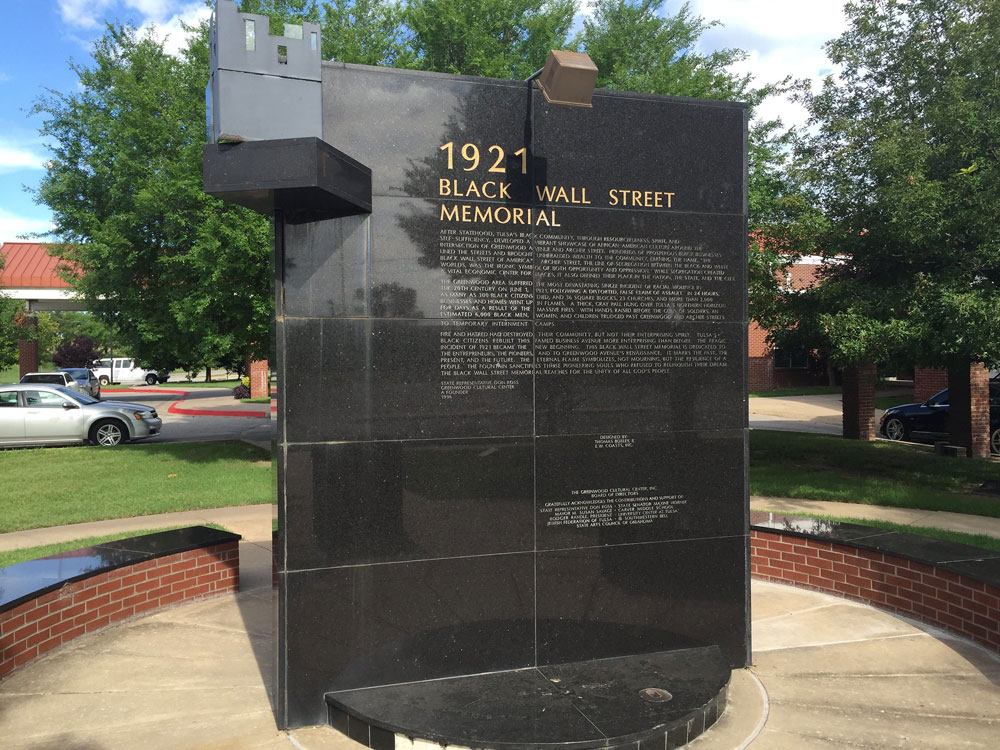
June 11, 2020; New York Times
Candidate Trump is holding his first post-shutdown rally in Tulsa, Oklahoma, on June 20th, with more than 20,000 supporters expected to fill the city-owned arena, to the horror of public health officials at all levels who cite a doubling of new COVID cases since the highs set in April.
Tulsa’s a city in a deep red state whose governor on June 1st lifted all restrictions on public gatherings. It’s a city that fits Trump’s pattern: “When he finds himself under attack or slipping in popularity, he often holds a rally in a place like this: a diverse blue city that’s home to liberal protesters but surrounded by red suburbs and rural towns filled with Trump supporters who will turn out in droves.”
But the city of Tulsa also defies easy categorization. Yes, it has a Republican mayor, but its history includes the 1921 white rampage in the then-prosperous Greenwood district—“Black Wall Street”—that killed 300 people, a history that was suppressed for fifty years.
Mayor G.T. Bynum says he won’t attend the rally, though he will greet the president on his arrival. And his actions since his election in 2016 don’t fit the current red-state mold. Bynum campaigned on investing in public education, and after the shooting of Terence Crutcher, an unarmed Black man, by a Tulsa police officer, he advocated for independent oversight of the police department.
In 2018, Bynum launched Resilient Tulsa, “an equitable, action-oriented and collaborative roadmap for all of Tulsa.” In the plan’s opening letter, he declared:
Sign up for our free newsletters
Subscribe to NPQ's newsletters to have our top stories delivered directly to your inbox.
By signing up, you agree to our privacy policy and terms of use, and to receive messages from NPQ and our partners.
For this generation of Tulsans, the great moral issue we face is in resolving the racial disparities that have been allowed to persist in our city for far too long. In 1921, Tulsa was the site of the largest race massacre in United States history. Hundreds of Black Tulsans were killed and businesses were destroyed in Tulsa’s Greenwood District—a place known around America at that time as Black Wall Street. Today, a child born in the most predominantly Black part of our city has a life expectancy that is 11 years shorter than a child born elsewhere in Tulsa. We have an obligation to address this inequity: every child, every family, and every individual in Tulsa should have equal and equitable opportunities. Their ZIP code should not determine their life’s path. This is the charge of Resilient Tulsa.
He hired as Chief Resilience Officer an African American woman named DeVon Douglas, who, before taking the job, worked as a policy analyst for the Oklahoma Policy Institute, a left-leaning research and advocacy organization. One of her first tasks was to publicly launch the city’s annual Equality Indicators Report, an effort to use 54 indicators to better understand inequality in Tulsa to feed informed community-wide conversations.
Since then, under the mayor’s Office of Resilience and Equity, the city:
- “Banned the box” on most City of Tulsa job applications, removing questions on criminal history to preclude automatic bias against candidates.
- Created a pipeline for immigrant leadership and representation on the city’s boards and commissions.
- Hired, in January 2019, a Tulsa-based, internationally renowned trainer specialized in global diversity and inclusion, cultural competence, social justice and healing racism, to lead the Police Department’s training efforts.
- Committed $5.3 million to renovate the Greenwood Cultural Center, a site that memorializes Black Wall Street and the 1921 massacre.
- Is launching, in late 2020, a Financial Empowerment Center to provide free, one on one financial counseling and promote access to asset building opportunities, banking services and employment.
And last month, the city appropriated $616,000 to support a new Internet Access Task Force, a group of 50 public and private citizens, to come up with solutions to address the “significant neighborhood disparities and racial and socioeconomic disparities related to internet access.”
For the mayor and many Tulsans, building a resilient and world-class city requires the imposition of a racial equity lens that acknowledges history, supports healing from the trauma it has caused, and advances social justice. Let us hope that this Republican-led city continues to advance along the arc of the moral universe as it “bends toward justice” despite candidate Trump’s dangerous efforts to sow chaos and thwart progress there this Saturday.—Debby Warren












